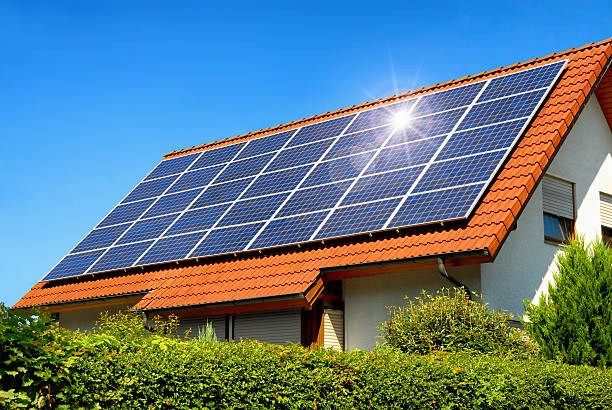Bottom line: Cars from Tesla’s Shanghai Gigafactory could pose a short-term challenge to luxury brands like Audi and BMW, and could help to revive the nation’s flagging NEV market longer-term if they move into more affordable terrain.

This week I’m taking a few steps outside my usual comfort zone and exploring the high-tech realm of new-energy vehicles with a closer look at global superstar Tesla Inc. (Nasdaq: TSLA) I’ve actually followed this company’s drive into the world’s biggest car market for some time, starting with its earliest days when it tangled with a squatter who registered Tesla’s Chinese name.
I’ll review some of Tesla’s earlier bumpy road into China shortly. But I’ll spend the bulk of this piece looking at Tesla’s relationship with China’s currently sputtering broader new-energy vehicle market as it prepares to open a new chapter in its love affair with the world’s most populous nation.
The company has been in the news nearly nonstop here for much of the last year, as it prepares to open the first production base outside the U.S. for its pricey but high-performance electric cars. In this case the plant is in Shanghai, and will start cranking out lower-end versions of Tesla’s mainstay Model 3 sedans at the start of next year. Even the most basic Model 3 model isn’t exactly cheap, with a price tag of 355,800 yuan, or roughly $50,000.
The company made headlines this week when it announced that the China-made Model 3 cars would be eligible for local subsidies, unlike other Teslas that have been sold in the country so far, which have all been imported from the U.S. Such subsidies were quite generous when China was trying to supercharge sales to promote the industry’s development. But they’ve been sharply rolled back this year, and Tesla buyers in China will have to settle for a modest subsidy of up to 25,000 yuan, equating to a relatively modest discount of about 7%.
The much bigger back story here is that China’s electric vehicle market has lost direction since the middle of this year, when most of the generous subsidies for both manufacturers and buyers were canceled. China took the drastic action after earlier subsidies were heavily abused by companies looking to pocket government money, either by pumping out large volumes of very low-quality cars or exaggerating their sales figures.
The latest stats are telling: sales of the vehicles plunged 46% year-on-year in October to just 75,000, following a 34% dive in September. Industry bellwether BYD Co. Ltd., one of the largest domestic manufacturers, posted an even larger 63% decline in November sales.
What’s more, the vast majority of purchases now come from big fleet owners, such as taxi and bus operators. A top executive at General Motors Co.’s main Shanghai joint venture recently estimated that of the 900,000 NEVs sold in the first nine months of this year, just 100,000 were purchased by ordinary mass-market consumers. That’s important because to really succeed in China, NEV makers will ultimately have to convince mass market consumers to buy their products rather than rely on government-linked entities whose decisions often cater to the latest party line.
Tesla to the Rescue?
Amid all the clutter of names like BYD and BAIC Motor Corp Ltd., which rely heavily on such politically-motivated buying, Tesla stands out as a stark exception. Before starting to set up its Shanghai plant, Tesla had no real local backing due to its status as an importer that didn’t bring any major economic benefits to local governments or businesses.
Thus its sales to date have been almost all commercially driven, and most of its customers have been status-conscious consumers willing to pay prices mostly associated with luxury brands like BMW and Audi. I can personally testify that Teslas are a relatively common sight here on the streets of Beijing, and that the cars enjoy a high degree of status and brand recognition among the upwardly mobile Chinese who will be needed to help the company succeed.
That image has been built gradually over the last five years, and has definitely gone through some ups and downs in that time. As I mentioned earlier, the ride was initially bumpy due to a trademark row that was ultimately settled in August 2014. Around that time, Tesla’s founder Elon Musk wowed China by personally visiting the country to launch its first vehicles.
Tesla has encountered another few speed bumps since, including a handful of scandals involving car accidents and some strategy and personnel adjustments in the early years. But at this point, the company does appear to be hitting on all cylinders, so to speak, with its China revenue surging 64% in this year’s third quarter to $669 million – just over 10% of its total for the period.
I talked with a couple of analysts to gauge what the company’s future may hold, with rollout of its China-made Model 3 cars coming in January. Both agreed the company is unlikely to single-handedly recharge the struggling new-energy vehicle market right away, especially since its higher-priced cars don’t really compete with most domestic players. Instead, it’s luxury car makers like BMW and Audi that could feel a slight pinch if and when higher-end Chinese buyers decide to test out the trendier and certainly more politically correct Tesla brand.
One analyst pointed out that Tesla is likely to take a top-down strategy, aiming first at higher-end buyers and then moving to middle-end ones over the next few years as the market and technology mature. He predicted Tesla could roll out one or more models next year priced in the 200,000-plus yuan range, which would mark an important inroad to mid-market affordability at the equivalent of the $30,000-plus range.
The company certainly has the capacity to crank out lots of such mid-priced cars, since the Shanghai plant alone is designed to eventually produce up to 500,000 vehicles per year.
With all that infrastructure and brand recognition in place, not to mention government goodwill following the Shanghai plant opening, the market could well become a major growth engine for Tesla if it doesn’t make any major missteps. That means names like BMW and Audi should watch out in the short term, and that over the longer term Tesla could provide a significant boost to lift China’s struggling new-energy vehicle market out of its current doldrums.










